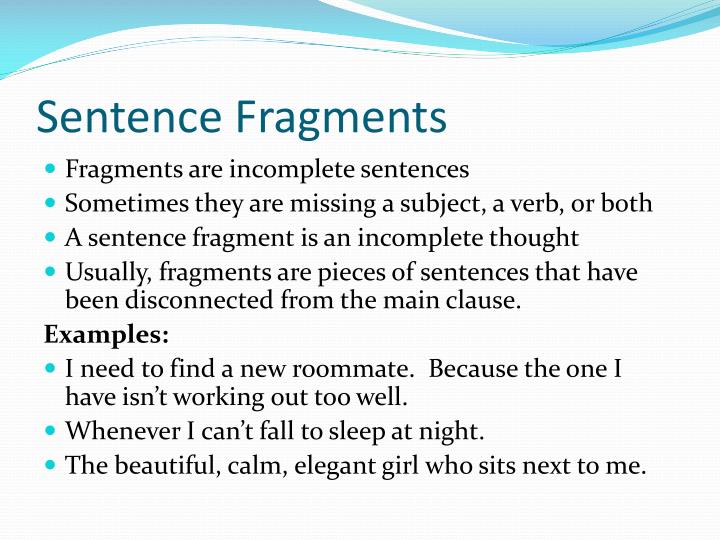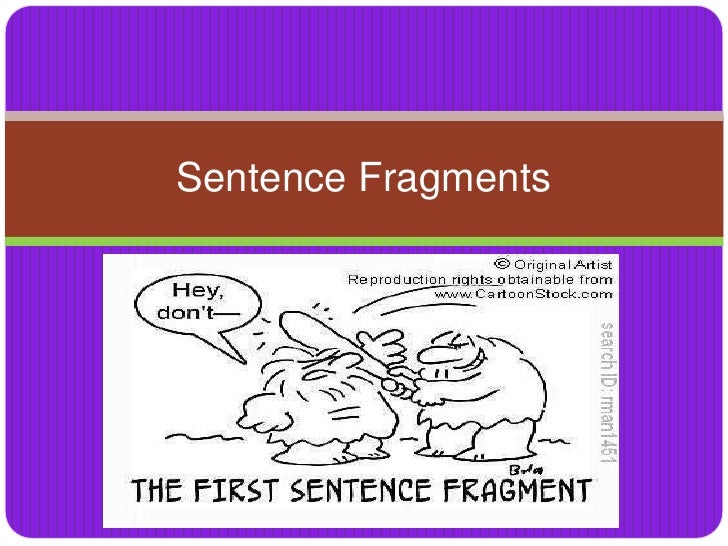
For example, suppose you have written:Īll you need to do to correct the fragment is to change the period to a comma, and attach the fragment to the simple sentence: The chips and beer- no verb Sentence fragments like these are corrected by making sure that each has both an adequate subject and a complete verb:Īs with the last example above, sometimes a sentence fragment can be corrected by combining it with the preceding or following sentences you have written. Any group of words written as a sentence that does not have both a subject and a verb is a sentence fragment: You can prevent fragments of this sort by making sure that whenever you begin with a subordinating word (such as unless, because, when, if, etc.), you include enough information in the sentence to create a complete thought.Īs a general rule, the best way to avoid creating sentence fragments is to ask yourself, when writing a sentence: “Does this sentence, standing on its own, express a complete thought?” If not, check to see what elements are missing.Remember that every clause must have a subject and a verb and that every sentence must have at least one independent clause. Unless the witness testifies, we will surely lose this case.

This case will be dismissed unless the witness testifies. The problem could be corrected either way: If you read it aloud, you’re probably thinking, “Unless the witness testifies – WHAT?” The writer here probably meant to attach this clause to the sentence before or after it. This sentence is really a dependent (or subordinate) clause that can’t stand on its own. The jurors remained in the hotel for three days. Or you could add a subject to the second sentence to make it complete: The jurors remained in the hotel for three days, bickering the whole time. The second sentence seems to be an afterthought to the first, so you could link them together: While the first sentence here is complete, the second is not – it is missing a subject. Here, the word “rose” functions as a verb, making this a complete sentence.Įxample 2: The jurors remained in the hotel for three days. The attorney objecting to the line of questioning rose to her feet. If, however, you wanted to say something more about that attorney, you could write:

The attorney objected to the line of questioning.

If you want to relate a simple, straightforward action, try: To make this into a complete sentence, you need to add a verb. Look closely: The phrase “objecting to the line of questioning” is really being used as an adjective to describe “attorney.” Which attorney is being discussed? The one who’s objecting to the line of questioning. Although “objecting” looks like a verb, in this case it’s not. The problem with this so-called sentence is that it’s missing a verb. The following examples are all fragments, for different reasons:Įxample 1: The attorney objecting to the line of questioning. A fragment can be defined as a sentence that does not express a complete thought – most often because it is missing a key element, such as a subject or verb, or begins with a subordinating word. Sentence fragments, along with run-on sentences, are among the most frequently made sentence errors.


 0 kommentar(er)
0 kommentar(er)
